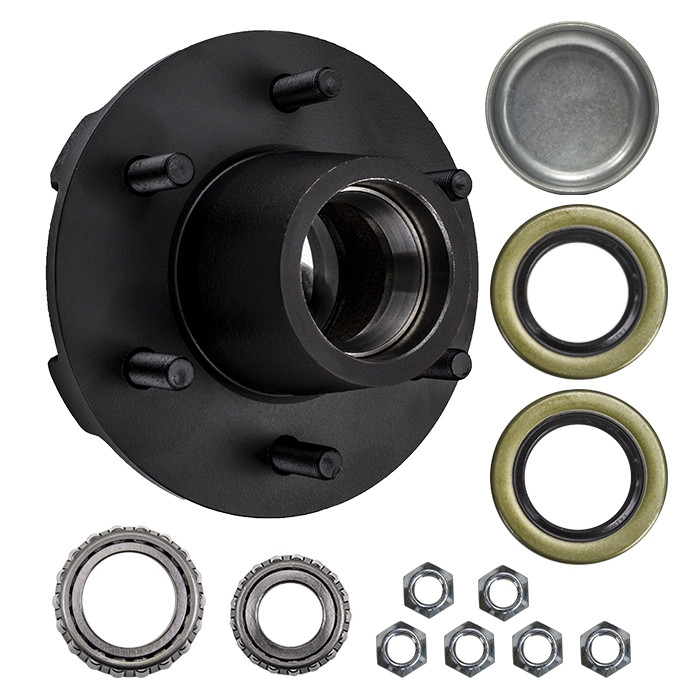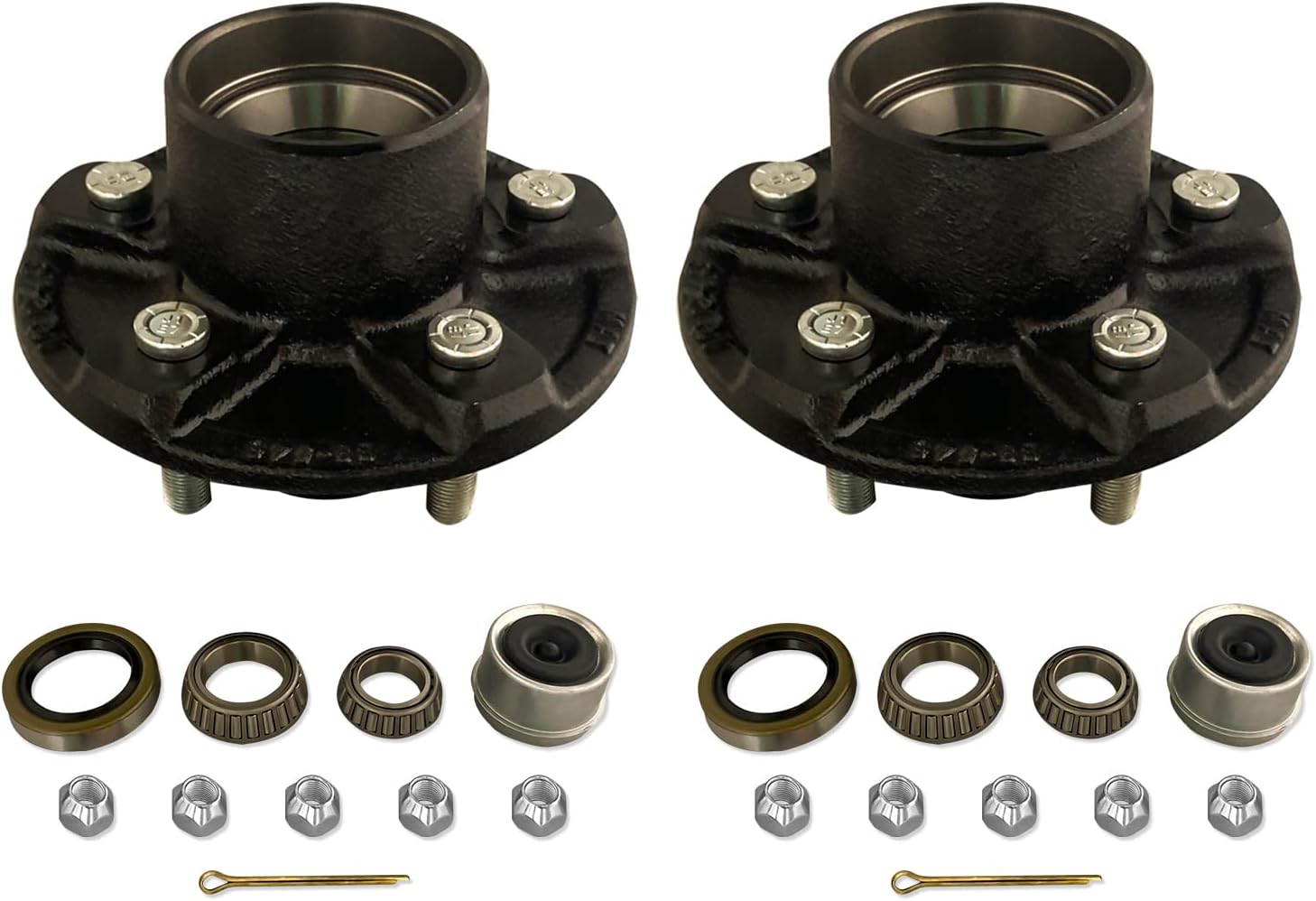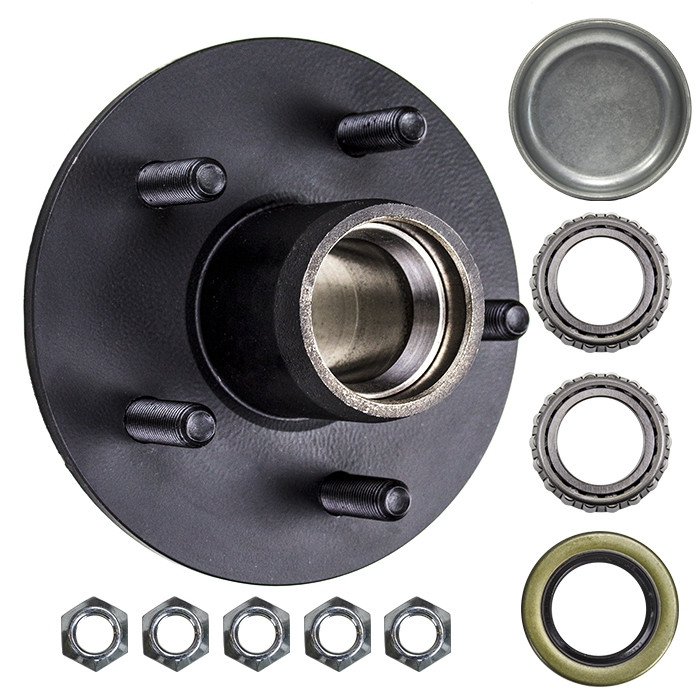Product Description
Product Description
| Product Name | wheel hub | Brand | XH |
| Application | Truck and Trailer | Place of Origin | ZheJiang , China |
| Capability | 43200 pcs/month | Delivery Port | HangZhou |
| Material | standard | Certification | ISO/TS 16949 |
| Color | Black/Gray | MOQ | 50 pcs |
| Weight | 21-26 kg | Lead Time | 20 days |
| Packaging | standard | Warranty | 1 year |
| Packaging | standard | Payment Term | TT |
1. The hub material is thick enough and the load is large.
2. High roundness, high-speed balance, good heat dissipation, and reduce wheel wear.
3. Dense low-pressure casting process, with T6 heat treatment, is not easy to deform.
3. Dense low-pressure casting process, with T6 heat treatment, is not easy to deform.
Company Profile
The company is professional in producing semi-trailer spare parts and almost all kinds of semi trailer. Main products Includes
Slack Adjuster, S Camshaft, Leaf Spring, Brake Shoes, Brake Lining, Brake Chamber, Axle, Suspension, and so on.
“Quality first with the conception of service” is our company’s inherited philosophy. We have passed ISO9001 quality system
certification and a scientific quality management system, the South African SABS-3 certification, and granted TS16949 Certification,
our After-sales service team provides timely service to customers. Meanwhile, the company has integrated high-quality resources
of domestic semi-trailer industry and will sincerely provide all kinds of semi-trailer components and relative services with excellent
performance & price ratio for customers both domestic and abroad.
We expect to build more cooperation through hard-working, high quality and our sincerity
/* March 10, 2571 17:59:20 */!function(){function s(e,r){var a,o={};try{e&&e.split(“,”).forEach(function(e,t){e&&(a=e.match(/(.*?):(.*)$/))&&1
| After-sales Service: | After Sales Maintenance |
|---|---|
| Warranty: | 12months |
| Type: | Wheel |
| Samples: |
US$ 50/Piece
1 Piece(Min.Order) | Order Sample according to customer′s requirements
|
|---|
| Customization: |
Available
| Customized Request |
|---|
.shipping-cost-tm .tm-status-off{background: none;padding:0;color: #1470cc}
|
Shipping Cost:
Estimated freight per unit. |
about shipping cost and estimated delivery time. |
|---|
| Payment Method: |
|
|---|---|
|
Initial Payment Full Payment |
| Currency: | US$ |
|---|
| Return&refunds: | You can apply for a refund up to 30 days after receipt of the products. |
|---|

How do I diagnose and address noise issues associated with a malfunctioning axle hub?
Diagnosing and addressing noise issues associated with a malfunctioning axle hub requires a systematic approach to identify the root cause and take appropriate corrective measures. Here’s a detailed explanation of the diagnostic process and steps to address the problem:
1. Identify the Noise:
The first step is to identify the specific noise associated with the malfunctioning axle hub. Pay attention to the type and characteristics of the noise, such as grinding, growling, clicking, or humming. Note when the noise occurs, whether it’s during acceleration, deceleration, or while turning. This initial identification can help narrow down the possible causes.
2. Inspect the Axle Hub:
Visually inspect the axle hub for any signs of damage or wear. Look for cracks, corrosion, or loose components. Check if there is any leaking grease around the hub, as it can indicate bearing failure. A thorough inspection can provide valuable clues about the condition of the axle hub.
3. Perform a Road Test:
Take the vehicle for a road test to observe the noise and its behavior under different driving conditions. Pay attention to any changes in the noise when making turns, accelerating, or braking. Note whether the noise gets louder or changes in pitch. This can help in further narrowing down the issue.
4. Jack up the Vehicle:
If the noise persists and is suspected to be coming from the axle hub, jack up the vehicle and secure it with jack stands. Rotate the wheel associated with the suspected axle hub and listen for any abnormal noise or roughness. Try to wiggle the wheel by hand to check for excessive play or looseness, which can indicate a problem with the hub assembly.
5. Check Wheel Bearings:
A common cause of noise issues in axle hubs is worn-out or damaged wheel bearings. To check the wheel bearings, grasp the tire at the 12 o’clock and 6 o’clock positions and attempt to rock it back and forth. Excessive movement or play indicates a potential problem with the wheel bearings. Additionally, spin the wheel and listen for any grinding or rumbling noises, which can also be indicative of bearing issues.
6. Addressing the Issue:
If a malfunctioning axle hub is identified as the source of the noise, the following steps can be taken to address the problem:
- Replacement: If the axle hub is severely damaged or the bearings are worn out, replacing the entire hub assembly is often recommended. This ensures proper fitment, bearing integrity, and overall reliability. Consult the vehicle’s service manual or seek professional assistance for the correct replacement procedure.
- Bearing Replacement: In some cases, it may be possible to replace the wheel bearings within the axle hub if they are the sole source of the noise issue. This requires specialized tools and expertise, so it is advisable to consult a qualified mechanic for bearing replacement.
- Additional Repairs: Depending on the severity of the issue, it may be necessary to address other related components. This can include replacing damaged CV joints, inspecting and replacing worn brake components, or addressing any other issues identified during the diagnostic process.
7. Post-Repair Verification:
After addressing the noise issue by repairing or replacing the malfunctioning axle hub, take the vehicle for a test drive to verify that the noise is eliminated. Ensure that the vehicle operates smoothly, and there are no abnormal vibrations or noises coming from the axle hub during different driving conditions.
It’s important to note that diagnosing and addressing noise issues associated with a malfunctioning axle hub can be complex, and it may require the expertise of a qualified mechanic. If you’re uncomfortable performing the diagnostics and repairs yourself, it’s advisable to seek professional assistance to ensure an accurate diagnosis and proper resolution of the issue.
In summary, diagnosing and addressing noise issues associated with a malfunctioning axle hub involves identifying the noise, inspecting the hub, performing a road test, checking wheel bearings, and taking appropriate repair or replacement measures. Following a systematic approach and seeking professional help when needed can help resolve the noise issue and ensure the safe operation of the vehicle.

Are there aftermarket axle hubs available with enhanced durability or performance features?
Yes, there are aftermarket axle hubs available with enhanced durability or performance features. Aftermarket parts are components that are produced by manufacturers other than the original equipment manufacturer (OEM) of the vehicle. These aftermarket axle hubs are designed to provide improved durability, performance, or other specialized features compared to the stock OEM axle hubs. Here’s a detailed explanation:
- Durability enhancements: Aftermarket axle hubs may incorporate design improvements or use materials that enhance their durability and longevity. These enhancements can include reinforced bearing housings, stronger wheel studs, improved seals and gaskets, or upgraded materials that better withstand heavy loads, extreme temperatures, or harsh driving conditions. The goal is to provide a more robust and long-lasting axle hub solution.
- Performance features: Some aftermarket axle hubs are designed to offer enhanced performance characteristics. These performance features can include better heat dissipation properties, reduced rotational friction, or improved weight distribution. Performance-oriented axle hubs may also be engineered to provide more precise wheel alignment, improved handling, or reduced unsprung weight, which can contribute to overall vehicle performance.
- Specialized applications: In addition to durability and performance enhancements, aftermarket axle hubs may be available for specialized applications. For example, there are aftermarket axle hubs designed specifically for off-road vehicles, heavy-duty towing, or high-performance sports cars. These specialized axle hubs may have features such as increased load-bearing capacity, improved water and debris resistance, or compatibility with upgraded braking systems.
- Brands and manufacturers: The aftermarket industry offers a wide range of options from various brands and manufacturers. Some aftermarket companies specialize in producing high-quality replacement parts, including axle hubs, that are designed to meet or exceed OEM standards. These aftermarket brands may have a reputation for providing durable and high-performance products, and they often offer warranties to back up their claims.
- Research and compatibility: When considering aftermarket axle hubs with enhanced durability or performance features, it is essential to conduct thorough research. Look for reputable aftermarket brands known for their quality and reliability. Additionally, ensure compatibility with your specific vehicle make, model, and year. Most aftermarket manufacturers provide compatibility information or have online resources to help you select the correct axle hub for your vehicle.
It’s worth noting that while aftermarket axle hubs can offer enhanced durability or performance features, not all aftermarket parts are created equal. The quality and performance of aftermarket axle hubs can vary depending on the manufacturer and brand. It’s advisable to choose reputable aftermarket brands that have a track record of producing reliable and high-quality components. Consulting with automotive professionals or enthusiasts and reading customer reviews can also provide valuable insights when selecting aftermarket axle hubs.
In summary, aftermarket axle hubs with enhanced durability or performance features are available. These aftermarket options may incorporate design improvements, specialized materials, or performance-oriented features to offer increased durability, improved performance, or compatibility with specialized applications. Conducting thorough research and selecting reputable aftermarket brands can help ensure the quality and compatibility of the aftermarket axle hubs for your vehicle.

Are there any recalls or common issues associated with specific axle hub models?
Recalls and common issues can occur with specific axle hub models due to manufacturing defects, design flaws, or other factors. Here’s a detailed explanation:
It’s important to note that specific recalls and common issues can vary depending on the make, model, and year of the vehicle, as well as the specific axle hub manufacturer. Manufacturers and regulatory bodies such as the National Highway Traffic Safety Administration (NHTSA) monitor and address safety concerns related to axle hubs through recalls and investigations.
Recalls are typically initiated by the vehicle manufacturer or the axle hub manufacturer in response to identified safety defects or non-compliance with safety standards. Recalls aim to address the issues and rectify any potential safety risks associated with the axle hub models. They may involve inspections, repairs, or replacements of the affected components.
To determine if there are any recalls or common issues associated with specific axle hub models, it is recommended to check the following sources:
- Manufacturer’s Website: Visit the official website of the vehicle manufacturer or the axle hub manufacturer. They often provide information on recalls, technical service bulletins (TSBs), and common issues related to their products. Look for any relevant information specific to the axle hub models in question.
- NHTSA Website: The NHTSA maintains a comprehensive database of recalls and investigations related to vehicle components, including axle hubs. Their website allows users to search for recalls and investigations by specific make, model, and component. You can use their search tool to check if there are any recalls or investigations associated with the axle hub models of interest.
- Owner Forums and Online Communities: Online forums and communities dedicated to specific vehicle makes and models can be a valuable source of information. Owners often share their experiences, including common issues they have encountered with axle hub models. It’s important to consider multiple sources and exercise caution when relying on anecdotal information.
- Service Centers and Mechanics: Local service centers and mechanics who specialize in the specific vehicle make or have experience with the axle hub models in question may be aware of any recalls or common issues. They can provide insights based on their firsthand knowledge and experience.
By consulting these sources, you can gather information about any recalls or common issues associated with specific axle hub models. If any recalls or safety concerns are identified, it is recommended to contact the vehicle manufacturer or a certified dealership to inquire about the necessary actions, such as inspections or repairs, to address the issues.
In summary, recalls and common issues can occur with specific axle hub models. Checking the manufacturer’s website, the NHTSA website, owner forums, and consulting with service centers and mechanics can provide valuable information regarding any recalls or common issues associated with the axle hub models of interest. It’s important to stay informed and take appropriate actions to address any identified safety concerns.


editor by CX 2024-01-16